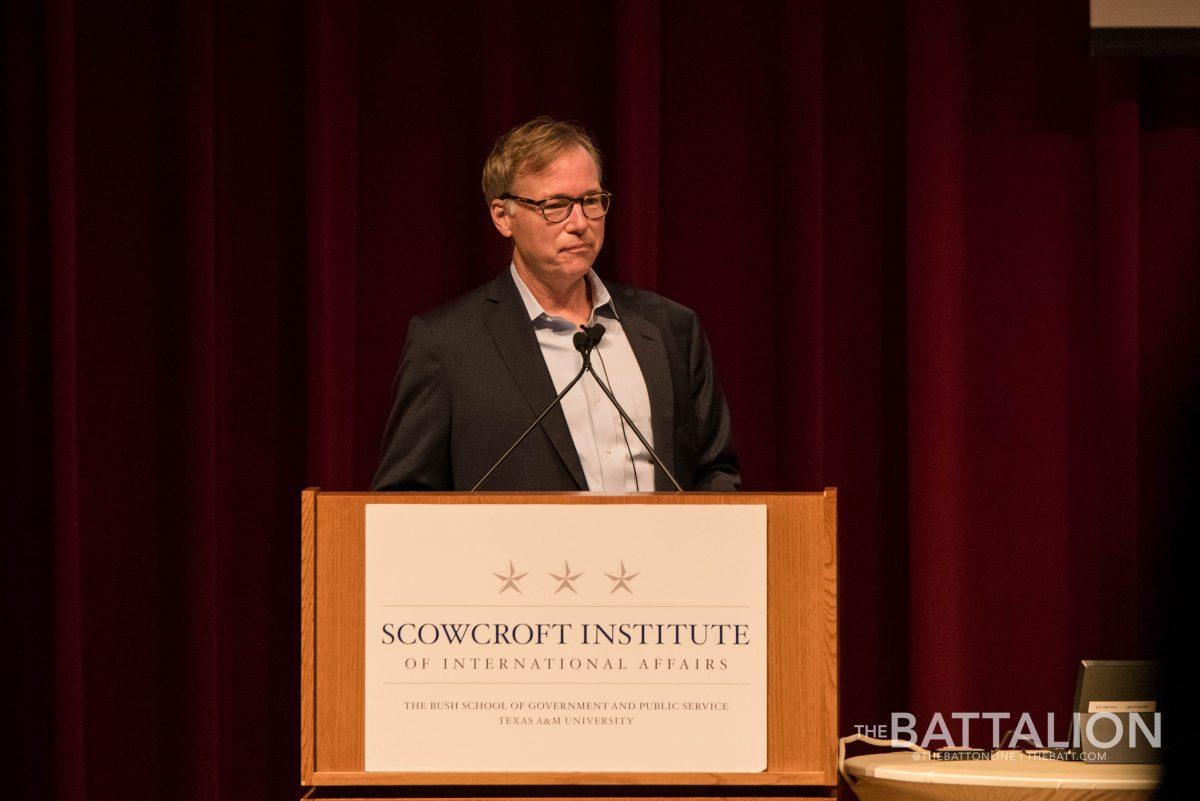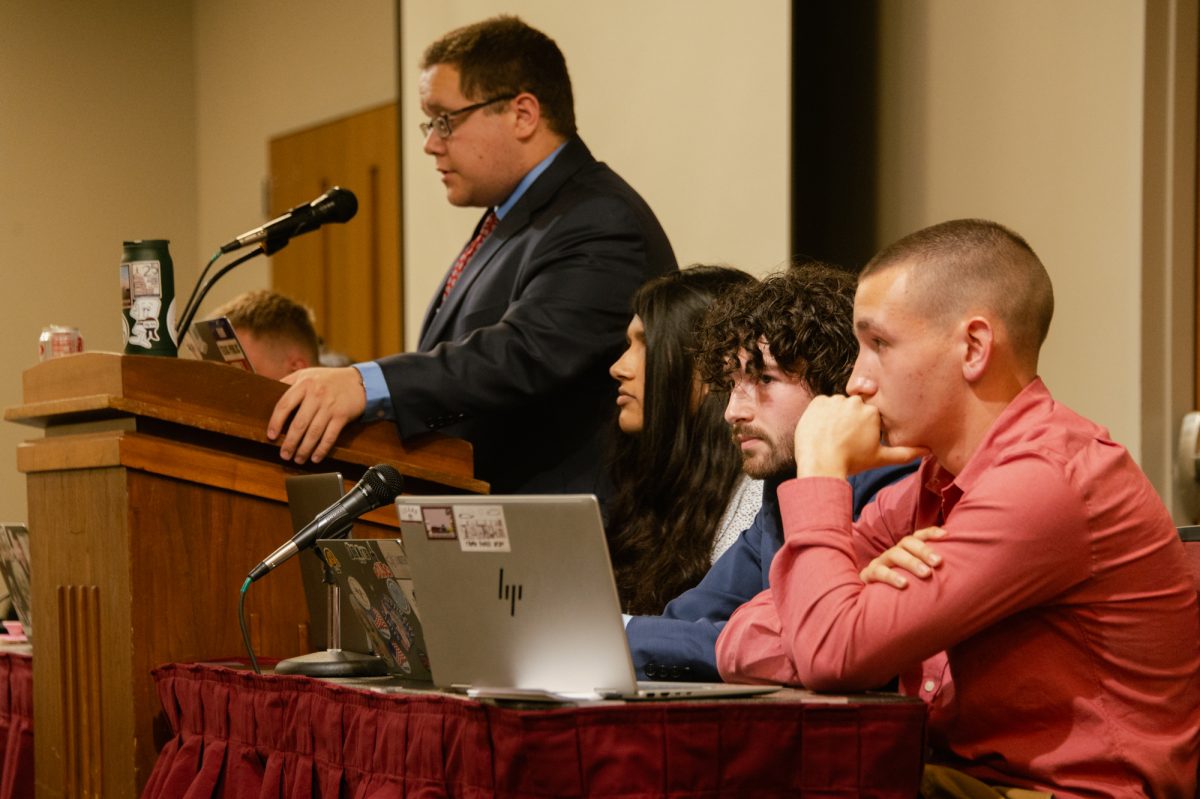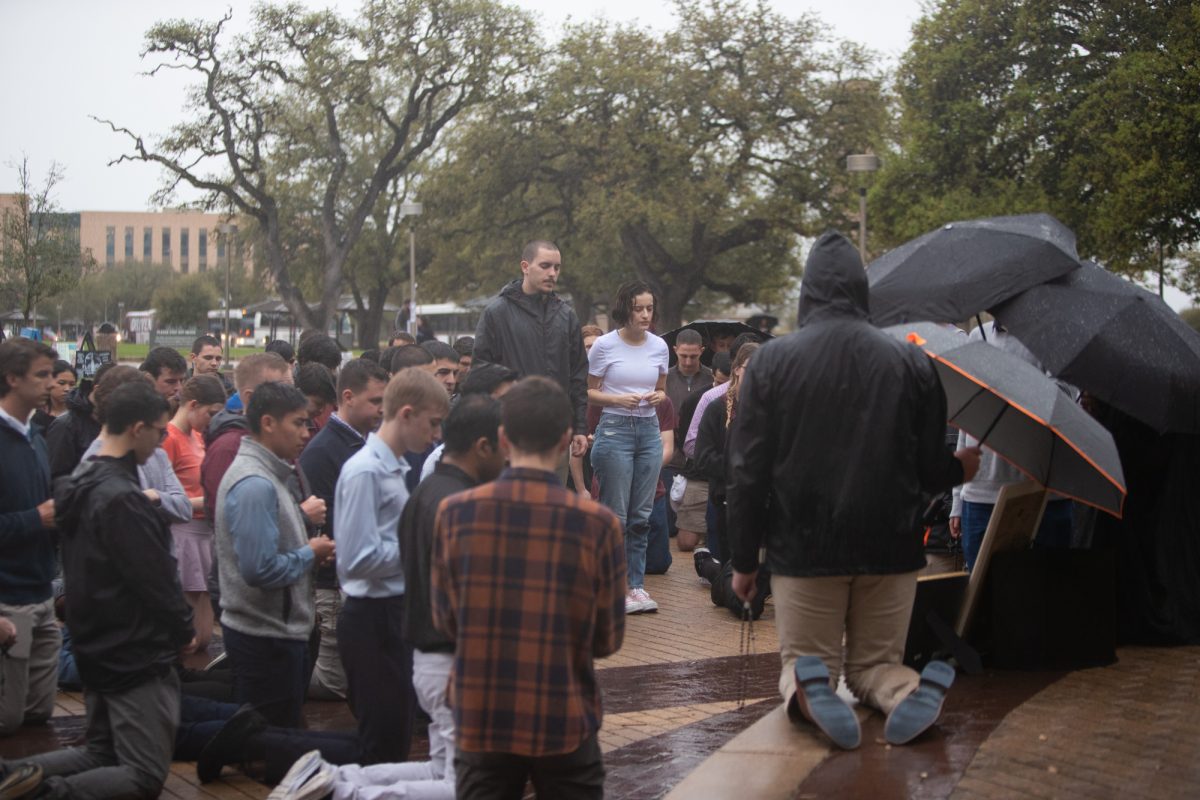Author, former journalist and two-time Pulitzer prize winner Stephen Coll lectured at Texas A&M about the war in Afghanistan and the United State’s role in the conflict.
Coll’s lecture — based on his book Directorate S. — was held at the Annenberg Presidential Conference Center focused on U.S. intelligence and military attempts to combat Al Qaeda and the Taliban following 9/11.
Coll addressed the necessity of the war in Afghanistan, which the United States has fought for the past 17 years.
“What vital interests of the United States justify the sacrifices of lives and treasure that we’re making in this war, especially as we’re proposing now to escalate our investments in the war?” Coll said.
Coll said the two main factors for continuing the war are the presence of Al Qaeda in the region — though these forces are primarily concentrated along the borders of Pakistan and in Pakistan itself — and the security of Pakistan’s national weapons.
“What’s the problem?” Coll said. “We’re sending 100,000 troops to Afghanistan, both of the interests, we’ve identified are actually in Pakistan. So why then are we going over here in order to protect interests that are over there?”
Another complication throughout the war in Afghanistan is the disjuncture among United States federal and national security bureaucracy that makes operating on a single plane difficult.
“An American needs to realize that to even try to unify the United States, absent of external shock like a war that brings everybody together or some kind of external conflict, you really have to understand how centrifugal the national state of affairs is in the U.S. government,” Coll said.
According to the editorial board of the New York Times, over 2.7 million Americans have fought in the war on terror since its initiation in 2001. The same opinion article went on to call for an end to the war in Afghanistan, despite the immediate consequences that could ensue.
“If efforts to deal with international terrorism are to be sustainable indefinitely, they need to rely principally on intelligence and interdiction, diplomacy and development — not war without aim or end,” the article said. “The troops have fought bravely in Afghanistan. It’s time to bring them home.”
Coll said he disagrees with the stance taken by the editorial board, which was once supportive of the war on terror.
“I think it would create, quite predictably, a destabilizing effect … Its right for the United States to work for the reduction and eventual withdrawal of military force in Afghanistan,” Coll said. “But, in the middle of a negotiation where the United States has such limited leverage as it is, why would you pull the last bit of leverage that you have? It makes no sense.”
Coll said the opinion piece was written as an essay or argument against the war, but it made no reference to the possibility of reduced violence through political negotiation that the Trump administration is pursuing. He said ceasefires would instead be a better method of ensuring peace in the region.
“Ceasefires, prolonged ceasefires, can have a real effect on the political and territorial realities that wars occur in…” Coll said. “And if you could at least develop a ceasefire that lasted for 6 or 9 months… Even if that negotiation produced another round of fighting, it would have a positive effect on the outcome.”
Author and journalist discusses war in Afghanistan at Monday night lecture
February 5, 2019
Photo by Photo by Cassie Stricker
Two-time Pulitzer prize winner Stephen Coll is the Dean of Columbia University Graduate School of Journalism and author of Directorate S, published in February of 2018.
0
Donate to The Battalion
$2065
$5000
Contributed
Our Goal
Your donation will support the student journalists of Texas A&M University - College Station. Your contribution will allow us to purchase equipment and cover our annual website hosting costs, in addition to paying freelance staffers for their work, travel costs for coverage and more!
More to Discover










